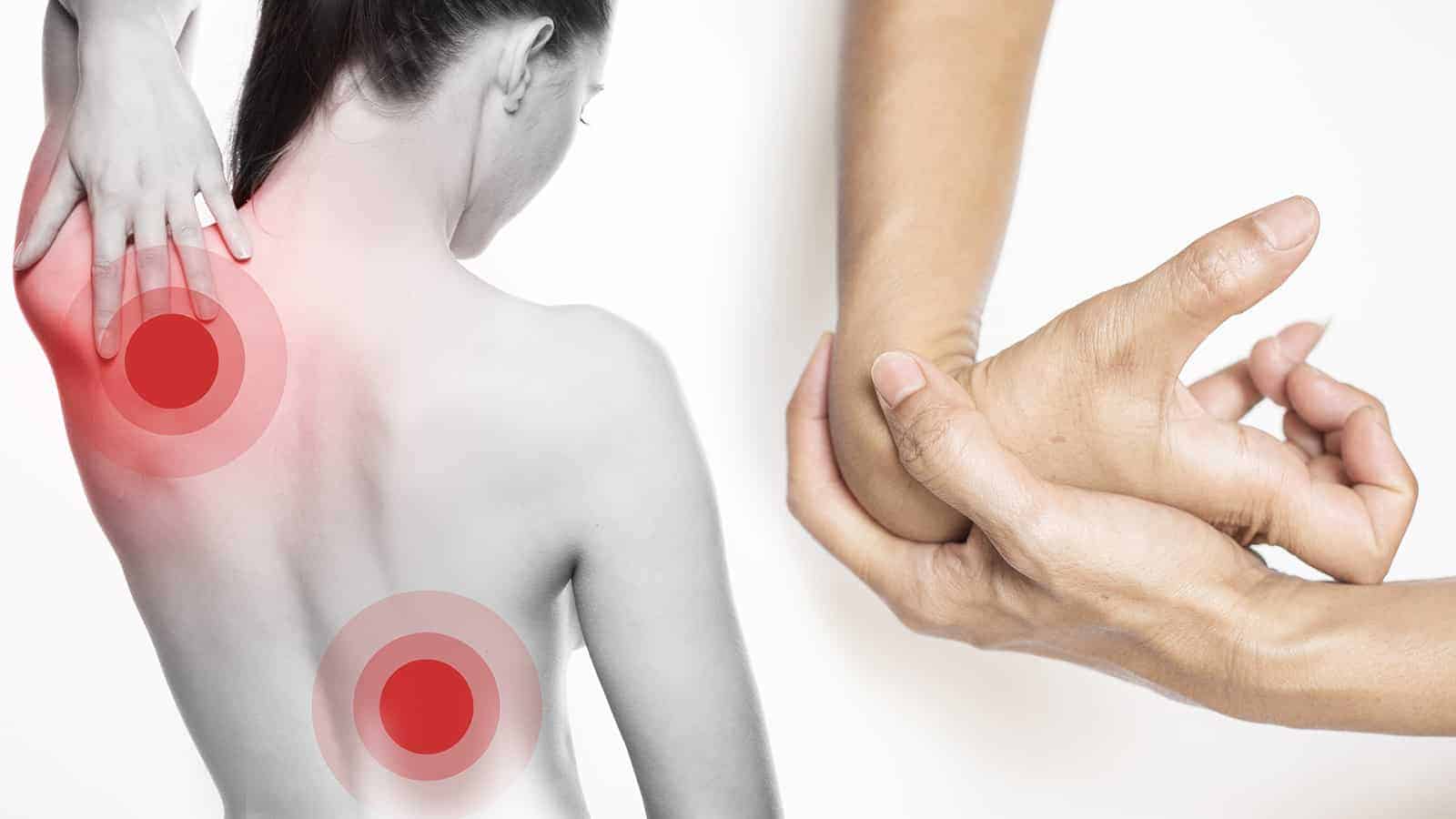Have you ever been at home or work and suddenly felt a painful cramp in a muscle? It’s something that happens to everyone, and it usually isn’t severe. However, how do you know when you should seek medical attention for a muscle spasm?
If you’ve experienced cramps in your muscles, you know that they can be sudden and painful. They occur when one of your muscles or a group contract involuntarily. Muscle spasms are common anywhere in your body, from the minute ones in your eyelids to your large calf and glute muscles.
How many times have you awoken in the middle of the night with an excruciating spasm in one of your calves? You probably hopped out of bed to walk and massage away the kinks. These “Charley horses” are some of the most common muscle cramps people experience.
Usually, muscle cramps are felt in the core, but the spasms can be strong enough to affect surrounding bones. The concern is that if this happens, a spasm can cause bone or joint damage.
Whether your spasms are small or significant, they can be painful, even after they’ve subsided. Some cramps can affect your internal organs, as in the case of an overactive bladder. When the bladder has contractions, you may experience embarrassing urine leakage.
What Causes Muscle Spasms?
There are a lot of issues that can cause your muscles to spasm. Fortunately, most of them aren’t serious enough to require medical attention. If you want to prevent these occurrences in the future, you may need to take some action. Here are some common reasons that you may experience spasms in your muscles:
 1. Stress and fatigue
1. Stress and fatigue
Your muscles work hard for you every day, so it stands to reason that they can feel tired and achy. According to guidelines published by the American Institute of Stress, chronic stress can cause your muscles to be tense and spasmodic. You may also notice painful muscle cramps when you haven’t had enough rest.
2. Overusing your muscles
Yes, your muscles are strong, but they can only endure so much. If you perform overly strenuous exercises, you may pay later with muscle cramps. Also, it’s easy to overdo it at work, or even if you must hold a certain position for a while.
3. Medication
Did you know that the side effect of some medications is muscle cramps? Talk to your primary healthcare provider if you think your medication may be affecting your muscles. Remember never to stop or change your dosage without medical advice.
4. Caffeine
If you enjoy a cup of coffee in the morning, the caffeine probably gives you the energy boost you need. However, caffeine is a drug, and it can also cause your muscles to cramp or spasm. You may notice these small spasms as an eyelid twitch or a little shakiness in your hands.
5. Dehydration
Have you been experiencing painful spasms in your muscles lately? It could be that you haven’t been drinking enough. Your muscles need water to stay toned and work optimally.
6. Electrolyte Imbalances
A book synopsis published by The National Library of Medicine explains that your body needs electrolytes for cell health and interaction between your nerves and muscles. When these essential vitamin and mineral levels are imbalanced, your muscles can spasm.
7. Incorrect Body Mechanics
Your posture and how you move your body are called body mechanics. When you hold your body in unnatural positions, it affects your muscles. Also, repetitive motions, constant bending, and lifting are a major source of muscle cramps.
8. Pregnancy and Childbirth
When you are pregnant, your entire body is in limbo for nine months. The extra stress of the baby and pregnancy weight is hard on your back and leg muscles. It’s common for expectant mothers and even those who just had a baby to have painful muscle cramps.
9. Underlying Spinal Conditions
Your backbone (spine) protects your spinal cord and all its branching nerves. When you have an injury or a spinal disorder, it can pinch these nerves and cause painful spasms in your muscles. A medical specialist best addresses these spasms.
10. Other Serious Medical Conditions
In rare cases, muscle cramps are caused by underlying neurological conditions. However, these spasms tend to be more intense and coexist with other muscular and nervous symptoms. They are also chronic rather than acute.
Most of these risk factors cause muscle cramps that are acute and will resolve with self-care. Others may linger and will require more time to get back to normal. You can successfully treat minor muscle cramps at home.
Self-Help for Muscle Spasms
Although most muscle cramps are painful, they usually aren’t severe enough to seek emergency care. You may already know your risk factors before you even experience the spasms. Here are some helpful ways to ease your spastic muscles yourself:
•If you feel a spasm during exercise or while moving a certain way, stop the movement immediately and rest the sore muscle.
•Drink some fluids for hydration and to replenish your electrolytes
•Massage and stretch the affected muscle gently until it relaxes
•Use a combination of heat and cold to soothe the achy muscles
Ten Reasons to Seek Medical Attention for Muscle Spasms
These self-care suggestions listed above can help with minor spasms, and you should notice a difference in a day or two. However, these are ten cases where you should consult a healthcare professional for your spastic muscles.
1. If Your Muscle Spasms Are Frequently Happening
It’s normal for people of all ages to have an occasional muscle cramp. You can bet on having them at some time if you are physically active. But if your spasms are chronic and intensify over time, it’s time to see a medical professional.
2. If You’re Experiencing Mental Changes, Weakness, or Loss of Balance
When these symptoms accompany spastic muscles, it may be a sign of a more serious condition. It could be a spinal or neurological issue. See your primary healthcare provider as soon as possible.
3. If the Spasms Cause Other Pain Issues, Such As Back Pain or Spasms
Usually, muscle cramps are confined internally to one muscle or a small group. Stronger spasms can not only affect your muscles, but they can affect other parts of your body. This condition is common for those who have back or neck issues.
4. If the Spasms Won’t Resolve Despite Trying Remedies at Home
Most of your muscle cramps and Charley horses are acute, don’t last long, and will resolve with care at home. You may find relief from heating pads, ice packs, massage, or stretching. If your cramps continue past a week or two, you may consider a medical consultation.
5. If You Notice Skin Discoloration, Redness, or Swelling
Spastic muscles usually don’t leave their mark. They hurt for a while, and then they’re gone. However, you should be concerned if you notice inflammation or any bruising around the cramping muscle. Report these symptoms to your healthcare provider immediately.
 6. If You’re Having Trouble Breathing
6. If You’re Having Trouble Breathing
Have you ever had spasms in your chest accompanied by shortness of breath? An article published by the Integrated Physiological and Behavioral Science Journal states the diaphragm often causes it. This muscle separates your chest from your abdominal cavity, and you can experience painful spasms that affect your breathing.
7. If the Spasms Began When You Started or Increased a Medication
As noted, certain medications can make you more prone to having spasms in your muscles. If you’ve just started medication or your healthcare provider increased the dosage, watch for spasms. Report these to your provider as soon as possible, but don’t discontinue or change the dosage without medical advice.
8. If You’re Also Experiencing Burning or Tingling Down Your Leg
If your job requires you to be on your feet a lot or if you stay physically active, leg muscle cramps aren’t unusual. However, if these spasms produce a burning or tingling sensation down one or both of your legs, talk to your healthcare provider. It could be a sign of a back or nerve condition.
9. If You’re Experiencing Spasms After Trauma
Often, it may be the next day or later before you feel the full effects of trauma. First, you must seek emergency treatment after a severe injury. If you notice spasms in your muscles later, it could be an underlying issue that needs to be addressed.
10. If You’re a Senior
As you get older, those simple aches and pains aren’t so simple anymore. You may have conditions that cause muscle weakness or joint inflammation (arthritis). If you’re a senior and experiencing chronic muscle spasms, it’s essential to talk to your healthcare provider about them.
 Final Thoughts on Medical Treatment for Spastic Muscles
Final Thoughts on Medical Treatment for Spastic Muscles
When you overuse and overextend your muscles, their painful cramps are a constant reminder. Most of the time, you can take care of simple muscle spasms at home. However, if they become chronic and the pain increases, you should seek medical attention.

















